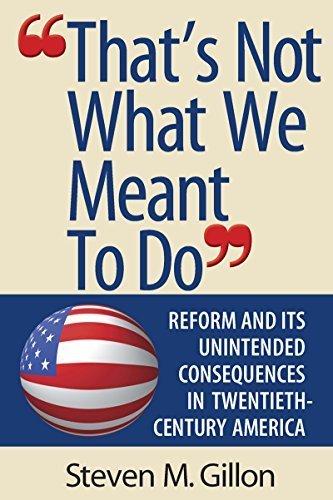What do you think?
Rate this book


As Gillon points out, conservatives often argue against government programs by citing the law of unintended consequences, though he believes this approach to be somewhat limiting: "At the heart of the problem of unintended consequences in the United States is a paradox: Americans look to Washington for solutions to complex problems, but they are reluctant to give government the power it needs to address most issues." Later, he adds, "I would not want readers to conclude from these examples that we must abandon our efforts to identify social problems or suspend efforts to use government as a positive force for social change." It's not clear all readers will come away from That's Not What We Meant to Do in agreement--some may begin to think a "do-nothing Congress" might be a good thing--but they'll certainly learn to expect the unexpected. Consider this a public-policy version of Edward Tenner's book Why Things Bite Back. It should be required reading on Capitol Hill. --John J. Miller
Paperback
First published May 1, 2000